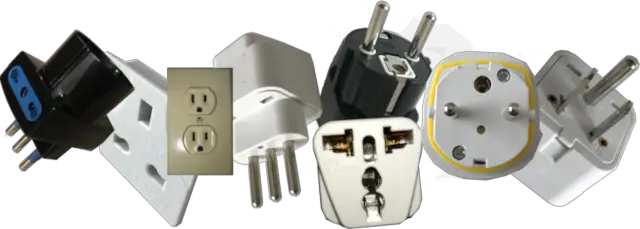Why protected adapters are important in developing countries
Laura Bure - March 23, 2018
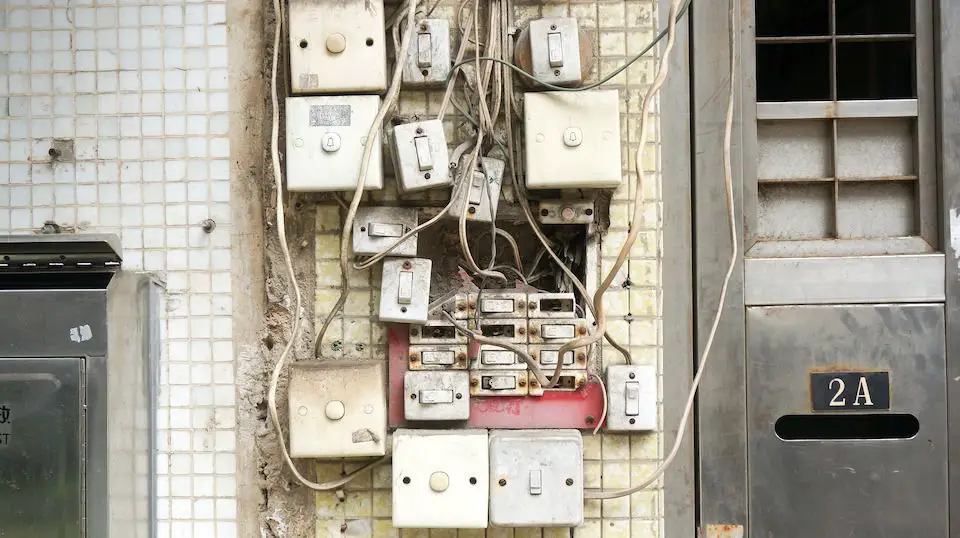 Bare live-wires in door buttons exposing the user to a safety hazard
Bare live-wires in door buttons exposing the user to a safety hazard
Have you bought the cheapest adapter? Are you going to a developing country? There are some safety consideration that you need to know to avoid fatalities! (yes! fatalities!)
No all countries follow regulations
If you have already visited countries like India, Thailand or Vietnam, you are probably aware in those countries the electricity regulations are either not very strict, not enforced or both.
Therefore taking extra care might save you from a fatality... even if you get a bit of an electric shock but managed to walk away 'safe' from it ...
The loose spike / stud protection
| Unprotected Adapter | Protected Adapter |
|---|---|
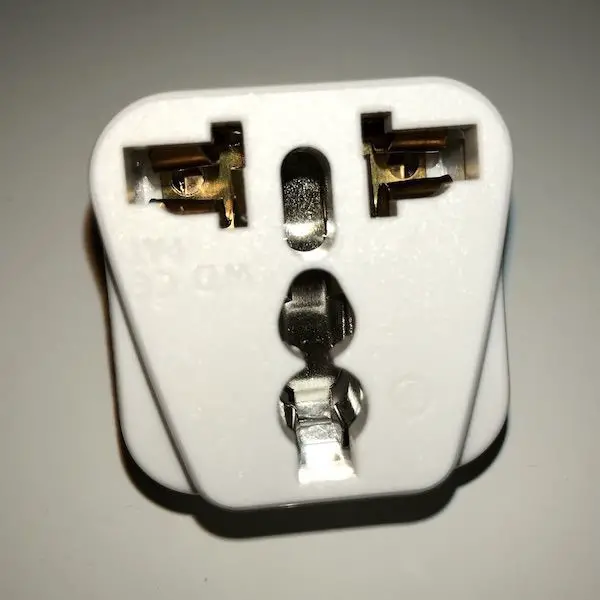 |
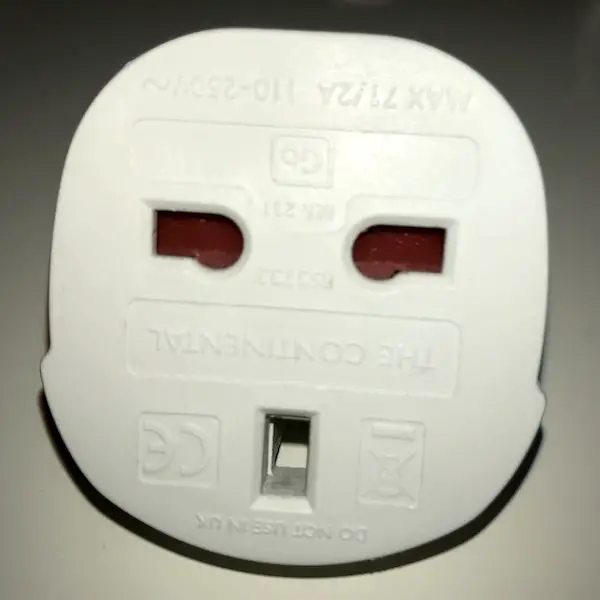 |
If you can see copper or a metal, that is NOT good. If you see plastic, that is the mechanism that stops you from inserting only ONE stud/sprike (but it will let you insert both at the same time). It also stops you or your kid from accidentally inserting a wire, metal or anything inside the plug.
The not so uncommon accident: touching a live pin / stud
| Step One | Step Two | Accident |
|---|---|---|
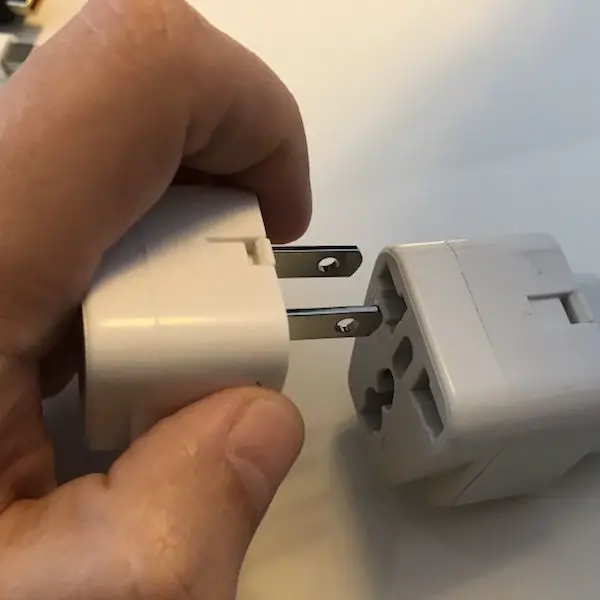 |
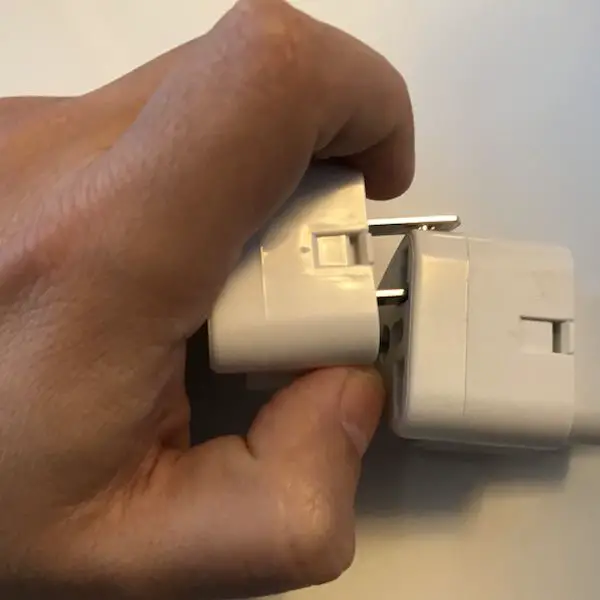 |
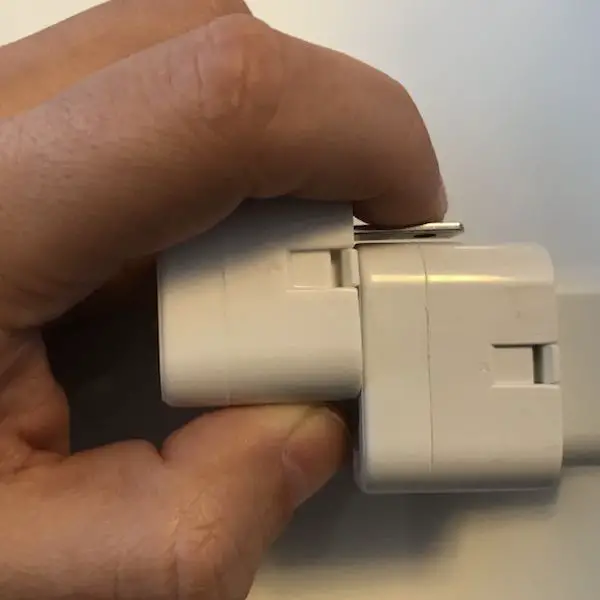 |
How it happens?
- It starts with good intentions, maybe you are in a rush, sleepy, the adapter is not visible behind the bed-table or maybe it is just bad luck.
- By mistake you insert only one pin into the plug, but the other stays outside.
- You touch the exposed pin / stub with your finger.
What is the problem?
At the moment you touch the exposed connector, you are making a circuit:
Earth (Floor) ⇒ Your feet ⇒ Your HEART ⇒ Your Finger ⇒ Exposed Connector ⇒ Appliance i.e. mobile charger ⇒ The Other Connector Inserted into the Socket ⇒ Live Wire
Electricity always tries to go from the Live wire to the Neutral and/or the Earth wire.
As soon as your heart receives an electric shock, it will stop pumping or develop an arrhythmia (which can end up in it failing... some hours later). If you ever receive an electric shock, please do visit a doctor, maybe you will need a electrocardiography to check your heart condition.
Why is this particularly dangerous in the developed world?
Residual-current devices "RCD" are standard and mandatory in mature and safe electrical networks. In the accident described above, a functioning RCD will detect that the amount of electricity going via the live wire does not equals to the neutral wire (the "other" wire in the socket) ... As soon as the RCD detects the electricity is going "somewhere else" (the earth), it will cut the whole house/flat mains instantly, in under 30 milliseconds.
The problem is, these devices are not enforced in most countries... and, they can also fail.
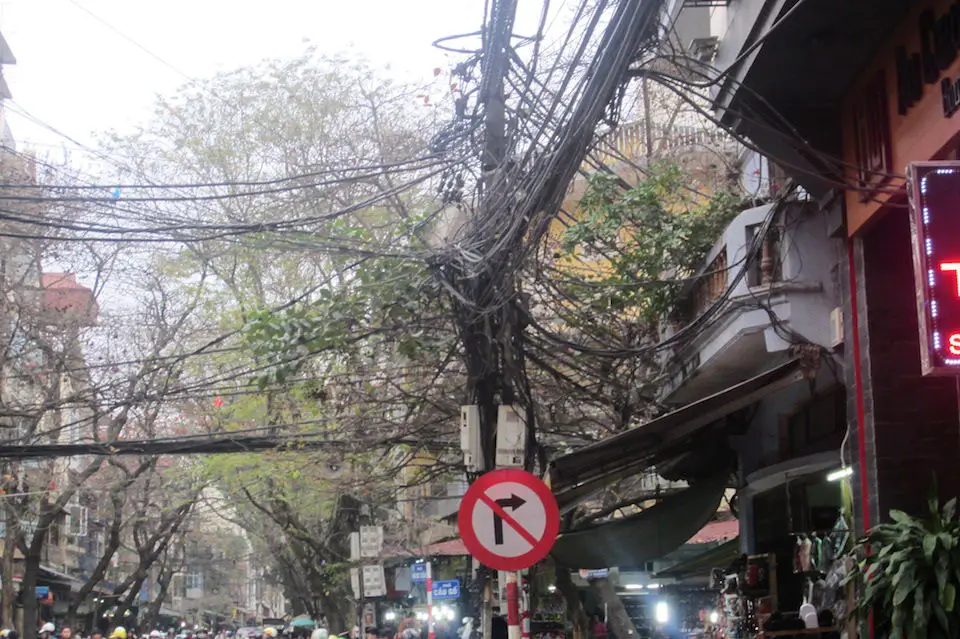 That is not a tree, but an electric distribution post in Hanoi.
That is not a tree, but an electric distribution post in Hanoi.
(You can read more about RCD devices in the Wikipedia)
Adapters with safety mechanism
It is not absolute fail-safe, but it will try to stop you from inserting half plug outside. Of course, if you make an effort, you can break it. Nevertheless, it is considered safer and usually mandatory in many countries, still many cheap adapters do not come with any sort of safety mechanism. Buyers Beware.
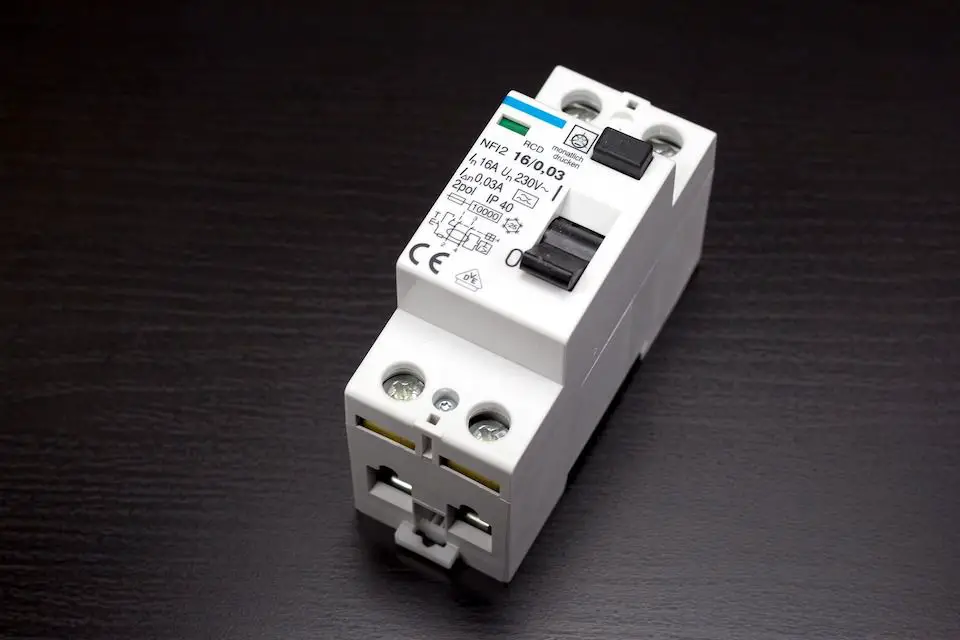 An Residual-current device (RCD) can save your life, but you will not know if your hotel, residency or house, is fitted with a good working one.
An Residual-current device (RCD) can save your life, but you will not know if your hotel, residency or house, is fitted with a good working one.
You can avoid this uncertainty by choosing plug adapters with extra protections like the following:
 Protected Adapter, notice the red plastic, that is the safety mechanism; get it on Amazon.
Protected Adapter, notice the red plastic, that is the safety mechanism; get it on Amazon.
(You can also you find more information and alternative adapters when you use our web wizards: "I'm from" or "I'm visiting")
↬ a link from your website helps too.
